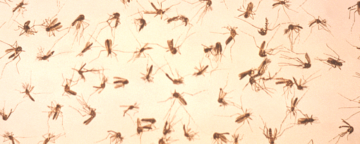APPC postdoctoral fellows presented their research overseas, speaking on GMOs and risk perceptions at a Society for Risk Analysis forum in Italy and on publication bias at a talk in Germany.


APPC postdoctoral fellows presented their research overseas, speaking on GMOs and risk perceptions at a Society for Risk Analysis forum in Italy and on publication bias at a talk in Germany.

APPC researchers urge scientists to engage with the public on scientific issues but caution them to carefully choose their audiences and avoid two-sided debates explicitly framed as conflicts.

Researchers from the Annenberg Public Policy Center presented work on public attitudes toward science at the American Association for the Advancement of Science meeting in Boston.

A new mandatory food-labeling law allows food producers to use digital codes to inform consumers that food contains genetically modified (GM) ingredients. But will consumers use smartphones or in-store readers to scan those QR codes?

APPC director Kathleen Hall Jamieson addressed the annual meeting of the Midwestern Legislative Conference, in Milwaukee, on "Effective Communication in a Polarized Environment."

There's widespread support for labeling genetically modified foods, as required in a new bill President Obama is expected to sign. But most Americans don't know that scientists have found no substantiated evidence to show that genetically modified foods are unsafe.

A little more than half of U.S. adults (53 percent) favor having scientists release genetically modified mosquitoes to minimize the spread of the Zika virus, according to a new survey by the Annenberg Public Policy Center.

Nearly two-thirds of Americans claim to have a “poor” or “fair” understanding of genetically modified organisms (GMOs), suggesting more knowledge is needed in food labeling and using GM mosquitoes to fight Zika.

Most Americans say it’s likely they would change their travel plans if they learned that their destination had a Zika virus outbreak, a new Annenberg Science Knowledge survey has found.

One in five people incorrectly think that scientists have established that the use of vaccines or a pesticide can cause babies to be born with unusually small heads, according to an Annenberg Science Knowledge survey.